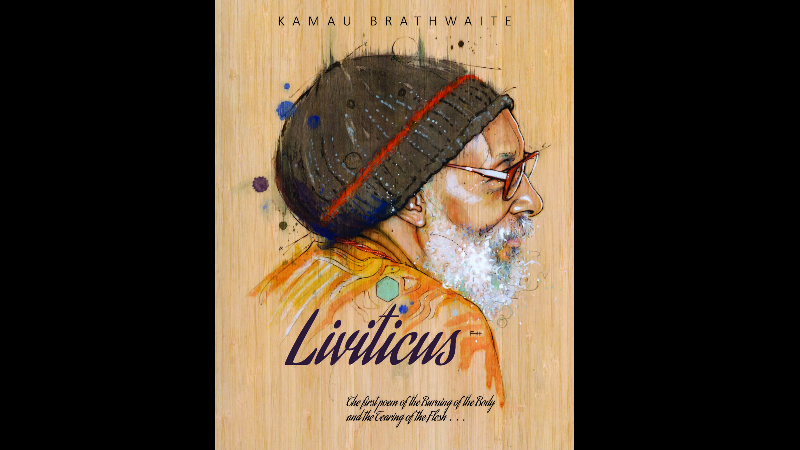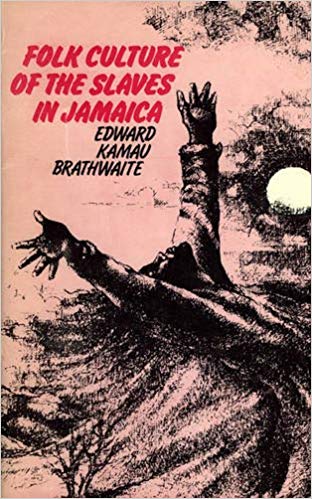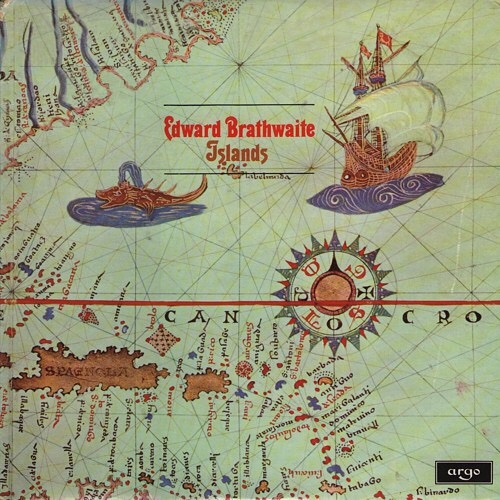|
Getting your Trinity Audio player ready...
|
Reading Time 5 mins
February 10, 2020*
“We lived in a society which denied itself heroes” – V.S. Naipaul in the Middle Passage.

Rejoice; Kamau is 80 –years- old today. We wish him a happy eightieth as we hasten to proclaim our filial indebtedness to this outstanding Caribbean scholar, who has tutored both our self-image and our self-knowledge during his more than fifty years of heavy intellectual toil.
In a half-century of fierce intellectual exertions, Kamau has been at once poet, philosopher, playwright, literary critic and theorist, surveyor of the Caribbean spirit (in space and in time), teacher, student of Caribbean history and discoverer and tiller of the abandoned acres of our “inner-plantations.”
The plantation is not the locus of all that is planted, Kamau sagely observed. And he warned that our Caribbean foundries needed to forge the tools that would plow under our sugar-smudged inheritance. Indeed, he looked our “cracked heirloom” in the face and pronounced: “the [Caribbean] unity is submarine…our problem is how to study the fragments/whole”.
Our problem is how to study the fragments/whole.

Eighty years here on Earth and 50-odd of those years invested in the brain-busting work of teasing community out of hotel-bearing islands of anarchic individualities-islands that sway to every imported breeze: How do you arrest a long-running cycle of dependency and mimicry?
But this is not a day for recrimination and retroactive finger-wagging; it is an occasion for celebration and absolution. We celebrate Kamau’s search scholarship. He said:
It is not
It is not
It is not enough
To be pause, to be hole
To be void, to be silent
To be semicolon, to be semicolony
He said:
The streets of my home have their own gods but we do not see them they walk in the dust but are hidden from our eyes even though the knuckles of my friends’ knocking open their secret doors (Shepherd).
He said:
The islands’ jewels:
Saba, Barbuda, dry flattened Antigua, will remain rocks, dots, in the sky-blue frame of the map.
It is not Kamau’s fault that we persist in seeing ourselves as tropical editions of foreign publications. It is not his fault that we size up ourselves before the Great House looking glass.
He said:
“Our weakness/failing as scholars is that we have been on a whole , too (and surprisingly) concerned with abstractions rather than with people: putting the cart before the horse”. (Caribbean Man in Space and Time, 1975)
But we persist, and the froth of fifth-form eloquence dribbles from the unctuous mouths of suited compradors/overseers.
It is not Kamau’s fault that we have yet to make our past usable and have not cultivated the inner plantation.
It is not his fault.
It is not
It is not
It is not his fault….
Lawson Edward [Kamau] Brathwaite was born in Barbados on May 11, 1930. He was a precociously intelligent boy who eventually won a place at the “‘elite” Barbados Harrison College, an all-boys secondary school that was more than two hundred years old by the time young Brathwaite first entered its portals in 1941: It was the year of Clement Payne (1904-1941) passing. Payne, the hero of Barbados’s July 26, 1937 “Disturbances” and the man who set in motion the social forces that will eventually break the “tectonic plate of race and class” (in Barbados), died just one month before young Mr. Brathwaite celebrated his eleventh birthday anniversary.
Did he hear the news of Payne’s April 7 (1941) collapse and subsequent death while addressing a public meeting in the Trinidadian capital? And did the name Clement Payne mean anything to him back then?
At Harrison, Brathwaite was a good student, and unimpeachable proof of this came in 1949 when he won the Island Scholarship, which took him to Pembroke College, Cambridge University, to read for an undergraduate degree in history and English.
Brathwaite traveled to England in 1950, a special year in the annals of Caribbean letters. For in that same year Vidia Naipaul, winner of the Trinidad and Tobago Island Scholarship, traveled to England to take up studies at Oxford; in 1950, too, George Lamming (1927- ) and Samuel Selvon (1923-1994) sailed to the ‘mother country’ in the same boat.

At Pembroke, Brathwaite fulfilled the requirement for his undergraduate degree in 1953, and he returned in 1954 to take the Diploma in Education.
One year later, the young Barbadian will go off to Gold Coast (Ghana), then “the vanguard” of the African independence struggle and herald of the new African dawn. At home in the West Indies and West Indian communities abroad, Ghana and its leader, Kwame Nkrumah, were reverenced.
In London, calypsonian Lord Kitchener (1922-2000) wrote and recorded “ Birth of Ghana,” a song that would become the new country’s unofficial anthem. Kitch sang:
This day will never be forgotten
The 6th of March 1957
When the Gold Coast successfully
Get their independence officially
Refrain
Ghana, Ghana is the name
Ghana, we wish to proclaim
We’ll be jolly, merry and gay
The 6th of March Independence Day
Over in Jamaica Laurel Aitken (1927-2005), one of the pioneers of ska and reggae was stung by the Ghana bug, and he responded with a song tribute titled “Ghana Independence” (They Got it).
It bears stating Ghana’s independence leader, Nkrumah, was in heavy intellectual debt to many West Indians/Caribbean thinkers, notably Marcus Mosiah Garvey (1887-1940), Edward Wilmot Blyden (1832-1912) [St Thomas, V.I.], and Trinidadians Henry Sylvester Williams (1869-1911), George Padmore (1902-1958), and CLR James (1901-1989).
In Nkrumah’s Ghana, Braithwaite worked as an education officer (1955-1961), playing his part in educating a new country to the demands of nationhood. In return, Ghana re-educated Brathwaite, giving the Cambridge graduate an African consciousness.
This African consciousness sparkled during a visit to Kenya. Upon seeing it, the Kikuyu grandmother of Brathwaite’s good friend, Kenyan novelist Ngugi wa Thiong’o conferred the name “Kamau” on the culturally reconstituted African: Kamau is Kikuyu for “Quiet Warrior.”
Brathwaite was back in England in the mid-sixties. This time to complete his doctoral dissertation, “The Development of Creole Society in Jamaica, 1770-1820”; It was published in 1971.
In 1966 Kamau worked with John La Rose (1927-2006) and Andrew Salkey (1928-1995) to launch the Caribbean Artists Movement. Braithwaite has long been associated with the University of the West Indies (Mona), where he was made a full professor in 1982. He left Mona in 1992 to become a Professor of Comparative Literature at New York University.

Kamau Brathwaite has won many coveted awards, including the Bussa Award (Barbados), the Neustadt International Prize for Literature, and the Casa de Las Americas Prize. He is the author of several books and essays.
The Silent Warrior is the finest interpreter of the semiotics of our collective stress; he is the epicist of our unspeakable trauma. In his heart, there beat the trembling fears of trammeled cargoes; in his fisted stanzas, there exist the strategic silences that coax nations and nation languages out of their fragmented submarine existence.
Long live, Brother Kamau!
* This article was previously published on Big Drum Nation on May 11, 2010

Caldwell Taylor was Deputy Foreign Affairs Minister during Grenada’s People’s Revolutionary Government from 1982 to October 1983. A former teacher, carnival bandleader, and journalist, Mr. Taylor was Grenada’s Ambassador to the United Nations from September 1980 to October 1983. Mr. Taylor lives in Toronto with his wife and family.
////////////////\\\\\\\\\\\\\\\\\////////////////\\\\\\\\\\\\\\\\\////////////////\\\\\\\\\\\\\\\
Merle Collins’ Valuing Self and Celebrating our Own Creativity… (Excerpt)
